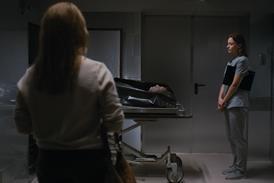The recent VoD success in the US of Bachelorette and Arbitrage shows that theatrical doesn’t have to be the starting point for independent films.
One of the most exciting developments of the year so far was the success of Bachelorette in the US. The Weinstein Company’s new multi-platform arm, Radius-TWC, acquired the comedy after Sundance and launched it for US audiences on August 10.
The excitement comes from how and where Radius-TWC launched it: the film came out on VoD (including cable platforms and iTunes) four weeks before its theatrical launch. It shot to number one on iTunes and attracted media attention as if it were a big theatrical launch (stars such as Kirsten Dunst promoted the film while it was on VoD, before it was in cinemas).
Bachelorette isn’t the only success story. Roadside Attractions/Lionsgate’s Arbitrage starring Richard Gere boasted the largest theatrical debut for a multi-platform title. Clearly both hits signal that new models are moving past mere theory and are actually doing business.
Still, the multi-platform world creates new challenges. In the UK, even a smaller indie film isn’t likely to get a run at any of the cinema chains if the film is released without the traditional window.
For studio films, the necessity of these windows is clear. The theatrical window makes economic sense for producers, distributors and exhibitors with tentpole movies. The Dark Knight Rises does not need to be on iTunes the day of its launch. Nobody in 2012 can risk putting a $200m film online to ‘see what happens’.
Where exhibitors need to have a more open mind is with independent and local films. In Denmark the exhibitors’ association is talking to the distributors’ association about relaxing windows for small local productions. These are films that sell up to 6,000 tickets - no exhibitor is going to lose big money if those films are also offered day-and-date online.
In the UK, distributor-exhibitor Curzon Artificial Eye is releasing some of its films day-and-date in cinemas and on new platform Curzon On Demand.
The VoD numbers aren’t divulged, and they are small, but what’s compelling is that CEO Philip Knatchbull does not think a VoD launch will cannibalise the cinema numbers, and if anything will boost cinema-going. This is forward thinking that more people should try with the right kinds of films.
Admittedly VoD still isn’t where the major money is, yet there is enough interest (and therefore money) in new platforms to make a real difference for independent filmmakers. For some small films, an online release can already make more sense than a p&a spend for a miniscule theatrical run.
Theatrical doesn’t have to be the be-all and end-all for independent films. And as Bachelorette proved, it doesn’t even have to be the starting point.
























No comments yet